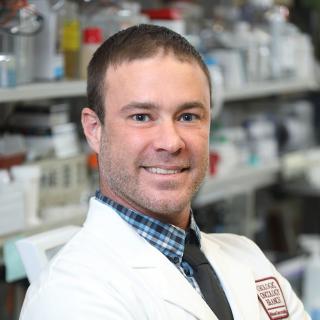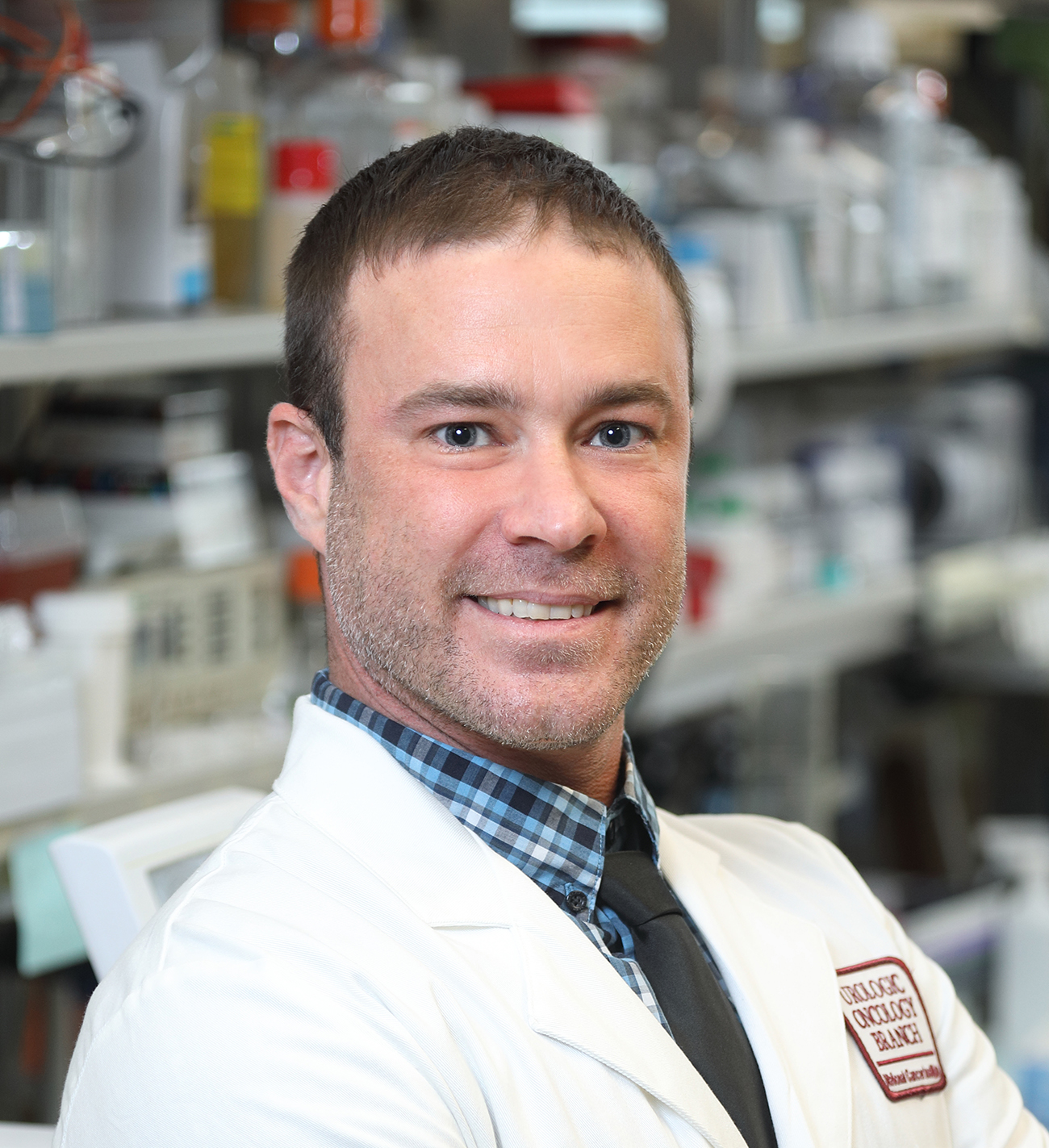
Daniel Crooks, Ph.D.
- Center for Cancer Research
- National Cancer Institute
- Building 10 CRC. Rm. 1W-5940
- Bethesda, MD 20892
- 240-858-3700
- crooksda@mail.nih.gov
RESEARCH SUMMARY
Dr. Crooks’ research is focused on the characterization of altered tumor and mitochondrial metabolism in hereditary cancers, including those caused by mutations in the Krebs cycle enzymes fumarate hydratase (HLRCC) and succinate dehydrogenase (SDH-RCC), as well as renal tumors associated with Birt-Hogg-Dubé and von Hippel-Lindau syndromes. The approach is to utilize stable isotope-resolved metabolomics, genomics, transcriptomic, proteomic and molecular techniques to identify targetable metabolic alterations in human tumors and tumor cells, to offer new therapeutic possibilities for these unique patient populations. Dr. Crooks is also the Acting Director of the CCR Clinical Cancer Metabolism Facility located in NIH Building 10 for the conduct of collaborative intramural metabolomics studies and metabolic imaging, with a focus on targeted analysis of human tissue samples, isotope-resolved metabolomics studies of patient-derived tissues and cells, and utilization of pre-clinical and human metabolic imaging technologies.
Areas of Expertise

Daniel Crooks, Ph.D.
Biography

Daniel Crooks, Ph.D.
Dr. Crooks completed a B.A. in Molecular, Cell and Developmental Biology and an M.S. in Environmental Toxicology at the University of California at Santa Cruz, where he studied the effects of elevated manganese exposures on neurotransmitter metabolism in vitro and in pre-clinical models under the mentorship of Dr. Donald R. Smith. Dr. Crooks earned a Ph.D. in Biochemistry from Georgetown University while performing research at NICHD in the laboratory of Dr. Tracey Rouault on the molecular mechanisms of cellular iron homeostasis using mammalian red blood cell development and human mitochondrial myopathy patients as model systems. Postdoctoral work at NCI under the mentorship of W. Marston Linehan was focused on the genetics, genomics, and mitochondrial metabolism in hereditary human renal tumor syndromes. Isotope-resolved metabolomics studies were performed under the guidance of Drs. Teresa Fan, Andrew Lane and Richard Higashi at University of Kentucky.
Publications
- Bibliography Link
- View Dr. Crooks' PubMed Summary
